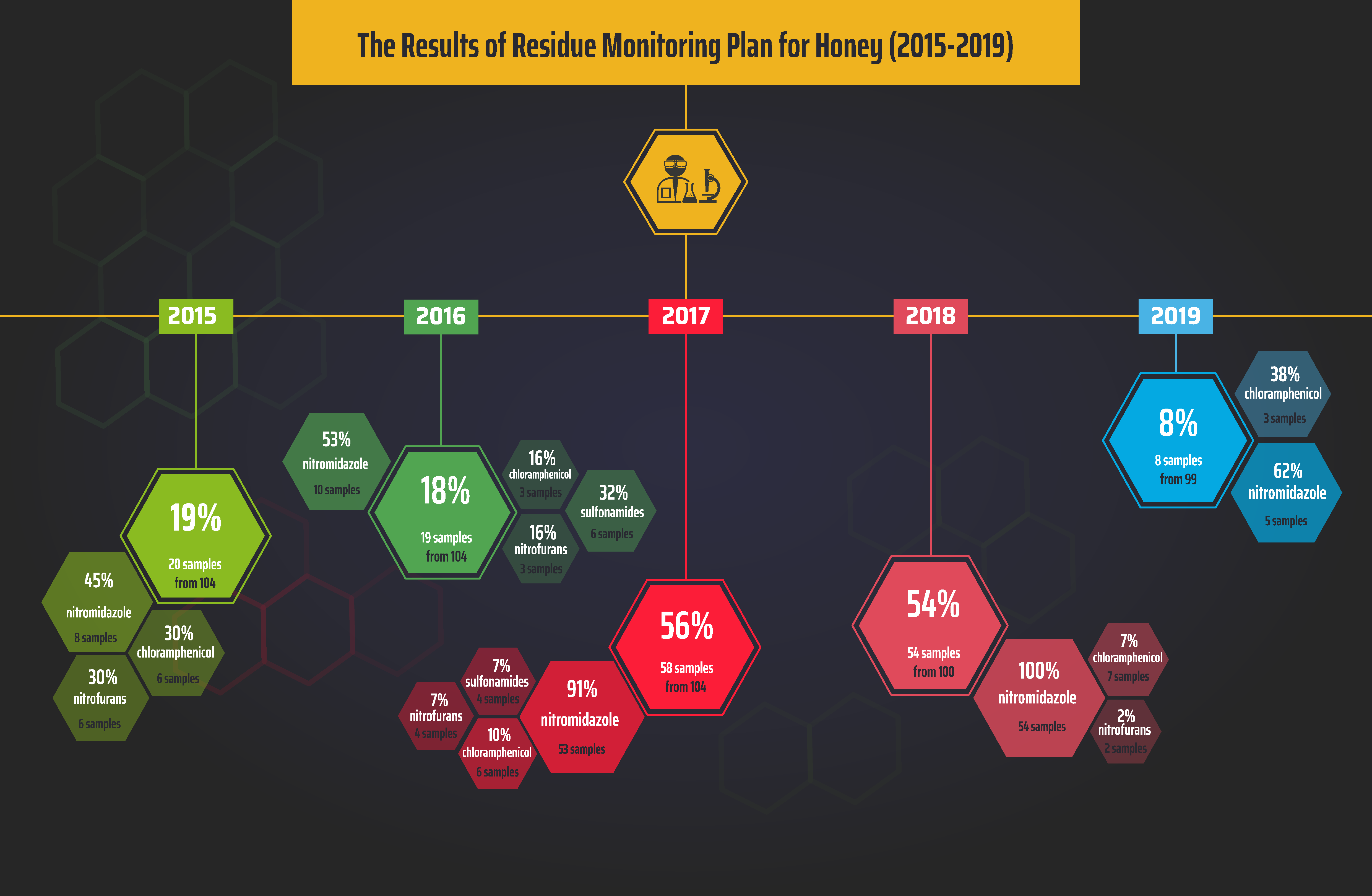Honey Quality Levels Continue to Rise
As part of the agreement which allows Georgian Honey to be exported to the EU, the government annually carries out a Residue Monitoring survey. Worryingly high residues of prohibited antibiotics were found in previous years (see infographic below). 2019 however saw national information campaign carried by the Georgian Beekeepers Union, who developed and disseminated Do’s and Don’ts Antibiotic Use Infographic and facilitated breakthrough legislation adopted by the Government of Georgia, which prohibits registration of the beekeeping vet medicines containing restricted antibiotics, among others. As a result, this year, only eight percent of honey samples tested positive for prohibited substances, compared to fifty-four percent of the last year, according to the Residue Monitoring Plan results, made by the National Food Agency in the BIOR laboratory in Riga, Latvia.
It is a significant achievement for Georgian honey export opportunities and expanding markets.

